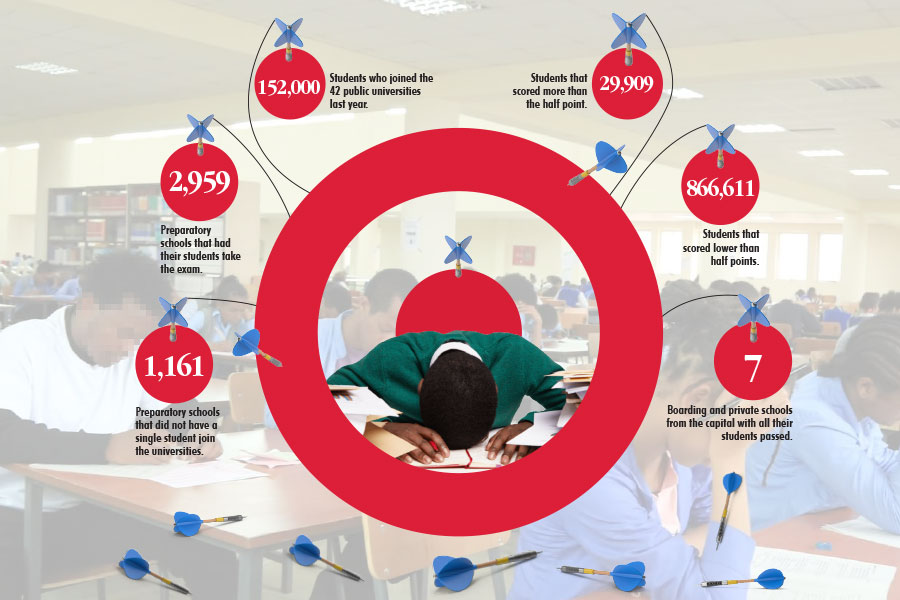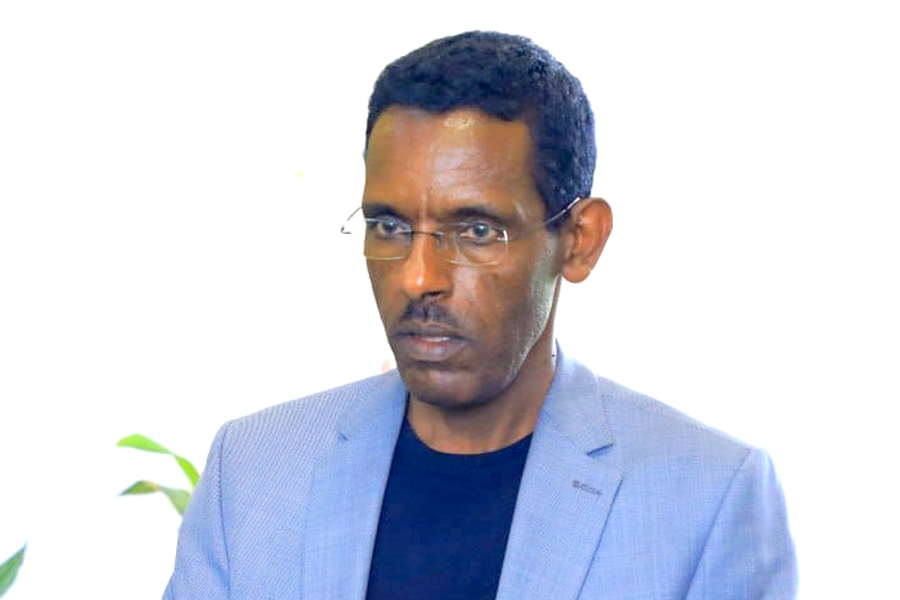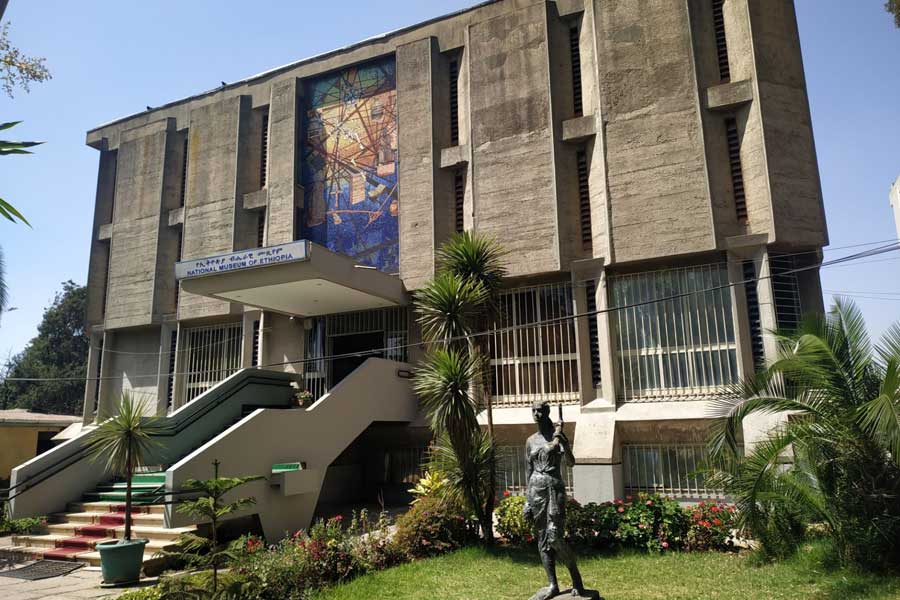
Commentaries | Mar 05,2022
Jun 20 , 2020
By Ahadu Yeshitela
Shortly after the first case of the Novel Coronavirus (COVID-19) pandemic was confirmed in Ethiopia, the local caller ringtone were replaced by an automated voice message intended to create awareness about the virus. For a brief period beginning on June 5, 2020, this was changed to another voice message, this time from Prime Minister Abiy Ahmed (PhD) encouraging people to realise the Green Legacy challenge and contribute to planting five billion trees for 2020.
No doubt, these are important messages to pass on to citizens. But it is equally important to understand the legal basis for the method that was used to communicate.
Does this infringe on our right to privacy? If it is made based on public interest, what does that constitute? Is there a legal exception for the right to privacy for the public interest? Can Ethio telecom unilaterally allow this? Should users provide written consent? What are the agreed terms and conditions for Ethio telecom users?
There is an article that refers to the right to privacy in the Constitution. It includes the rights to not be subjected to searches and seizures of property and the inviolability of communications made through letters, electronic devices and telecommunications.
However, considering the technological advances that allow governments to interfere in our personal lives, we should reconsider privacy rights. To do this, we would need to redefine the concept itself.
Despite the recognition of the need for privacy in the abstract, providing a concrete definition of the notion has eluded social scientists, jurists and philosophers seeking singular clarity on the subject, as Alexandra Rengel explains in her book, 'Privacy in the 21st Century.' Cognizant of the lack of a universally agreed-upon definition, privacy has been broadly related to individual autonomy and self-determination by the UN Special Rapporteur on the Right to Privacy.
The notion of privacy may also be defined differently based on one's interpretation of what amounts to an individual's sphere of autonomy. And for those who tried, the definitions are varied. Privacy has been defined in the context of personal autonomy or control over the intimacies of personal identity. It has also been defined as focusing on control over information about oneself.
More interestingly, privacy is "the condition of being protected from unwanted access by others - physical access, personal information, or attention," according to Sessela Bok, a Swedish ethicist.
The variation in these definitions is evident. But the right to privacy needs defining terms such as personal autonomy, personal space and even the term privacy itself as it applies to Ethiopia's current political, social and technological situation. Unfortunately, there does not seem to be much interest in this, mainly because, as many observers of Ethiopia have noted, the country's past history had little, if any, sensitivity toward privacy.
But for an aspiring democracy, privacy is an integral part of the idea of being left alone, as much as possible, by the government. At its core, privacy is the rightful claim of individuals to determine the extent to which they wish to reveal themselves and to control the time, place and circumstances in which they communicate with others.
Individuals thus should have the right to not allow the government to invade their personal space, including the caller ringtone they hear on their cell phones, without their consent. We have the right to control what we hear when we make calls and not be subjected to invasion from others.
This may sound like a petty issue. Some may argue that this does not hurt anyone, but establishing the legal and philosophical foundation for what the government can and cannot do even on small matters is critical for setting precedent.
When can a government intrude on this right?
There are exceptions for the right to privacy under the Constitution when there are "compelling circumstances and in accordance with specific laws whose purposes shall be the safeguarding of national security or public peace, the prevention of crimes or the protection of health, public morality or the rights and freedoms of others."
Which brings us to the question of how to define public peace or in general what we refer to as public interest?
The public interest, for which the concept of privacy is sacrificed, is a complex and tricky concept to navigate, because it is contextually determined in scope and purpose in a certain country or geographical area. It can be anything affecting the rights, health, or finances of the public at large. It is a common concern among citizens in the management and affairs of local, state and national government.
As a result, the recorded voice message that attempts to create awareness about the pandemic may be installed just because public health is threatened. It may also be argued that the Prime Minister's message will help rebuild our natural environment and curb some of the effects of climate change. It can also be that, considering the resources of the government, including public media, it did not need to infringe on our right to privacy to create awareness.
Whichever way the argument will go, it is important to at least question what we consider to be the public interest. We need to debate the matter and reach a consensus on values and actions and enter into an agreement based on consent.
For this, we will not be able to find the answer in the Constitution, which forms the framework within which we can debate, but in the institution that provides services and enforces legal protections.
Did Ethio telecom get consent from people to give access to the government and other bodies to provide unsolicited messages?
When a person buys a SIM card from Ethio telecom, they are provided with terms and conditions that mainly focus on the obligation of the customer but do not mention privacy and personal information.
Ethio telecom, especially as it is in the process of selling shares, needs to make sure its users have received the terms and conditions when they sign up for a product or a service.
Fortunately, there have been efforts to take data and privacy protection into account. This includes a directive by the recently established Ethiopian Communications Authority on consumer rights and protection, which is undergoing consultation - a late but commendable start. This directive includes a provision that protects personal information from being given to third parties and the terms that should apply when these entities provide service.
This is a good beginning, but such questions on the right to privacy, public interest and data protection need further debate. Raising questions instead of mere compliance is how legal texts, courts, citizens and discourses are improved.
As technology is rapidly changing, and as more citizens start using different products and services, it is time for the country to address privacy and data protection rights comprehensively. At the very least, citizens must have an option on whether or not they want to listen to such messages and what they should be obliged to hear.
PUBLISHED ON
Jun 20,2020 [ VOL
21 , NO
1051]


Commentaries | Mar 05,2022

Commentaries | Apr 04,2020

Viewpoints | Sep 11,2020

Fortune News | Feb 04,2023

Fortune News | Nov 18,2023

View From Arada | Jun 13,2020

View From Arada | Aug 27,2022

Commentaries | Jan 03,2021

Editorial | Jun 10,2023

Commentaries | Jul 03,2021

My Opinion | 132105 Views | Aug 14,2021

My Opinion | 128507 Views | Aug 21,2021

My Opinion | 126435 Views | Sep 10,2021

My Opinion | 124046 Views | Aug 07,2021





Dec 22 , 2024 . By TIZITA SHEWAFERAW
Charged with transforming colossal state-owned enterprises into modern and competitiv...

Aug 18 , 2024 . By AKSAH ITALO
Although predictable Yonas Zerihun's job in the ride-hailing service is not immune to...

Jul 28 , 2024 . By TIZITA SHEWAFERAW
Unhabitual, perhaps too many, Samuel Gebreyohannes, 38, used to occasionally enjoy a couple of beers at breakfast. However, he recently swit...

Jul 13 , 2024 . By AKSAH ITALO
Investors who rely on tractors, trucks, and field vehicles for commuting, transporting commodities, and f...

Jul 12 , 2025
Political leaders and their policy advisors often promise great leaps forward, yet th...

Jul 5 , 2025
Six years ago, Ethiopia was the darling of international liberal commentators. A year...

Jun 28 , 2025
Meseret Damtie, the assertive auditor general, has never been shy about naming names...

Jun 21 , 2025
A well-worn adage says, “Budget is not destiny, but it is direction.” Examining t...

Jul 13 , 2025 . By YITBAREK GETACHEW
The Addis Abeba City Revenue Bureau has introduced a new directive set to reshape how...

Jul 13 , 2025 . By BEZAWIT HULUAGER
Addis Abeba has approved a record 350 billion Br budget for the 2025/26 fiscal year,...

Jul 13 , 2025 . By RUTH BERHANU
The Addis Abeba Revenue Bureau has scrapped a value-added tax (VAT) on unprocessed ve...

Jul 13 , 2025 . By NAHOM AYELE
Federal lawmakers have finally brought closure to a protracted and contentious tax de...